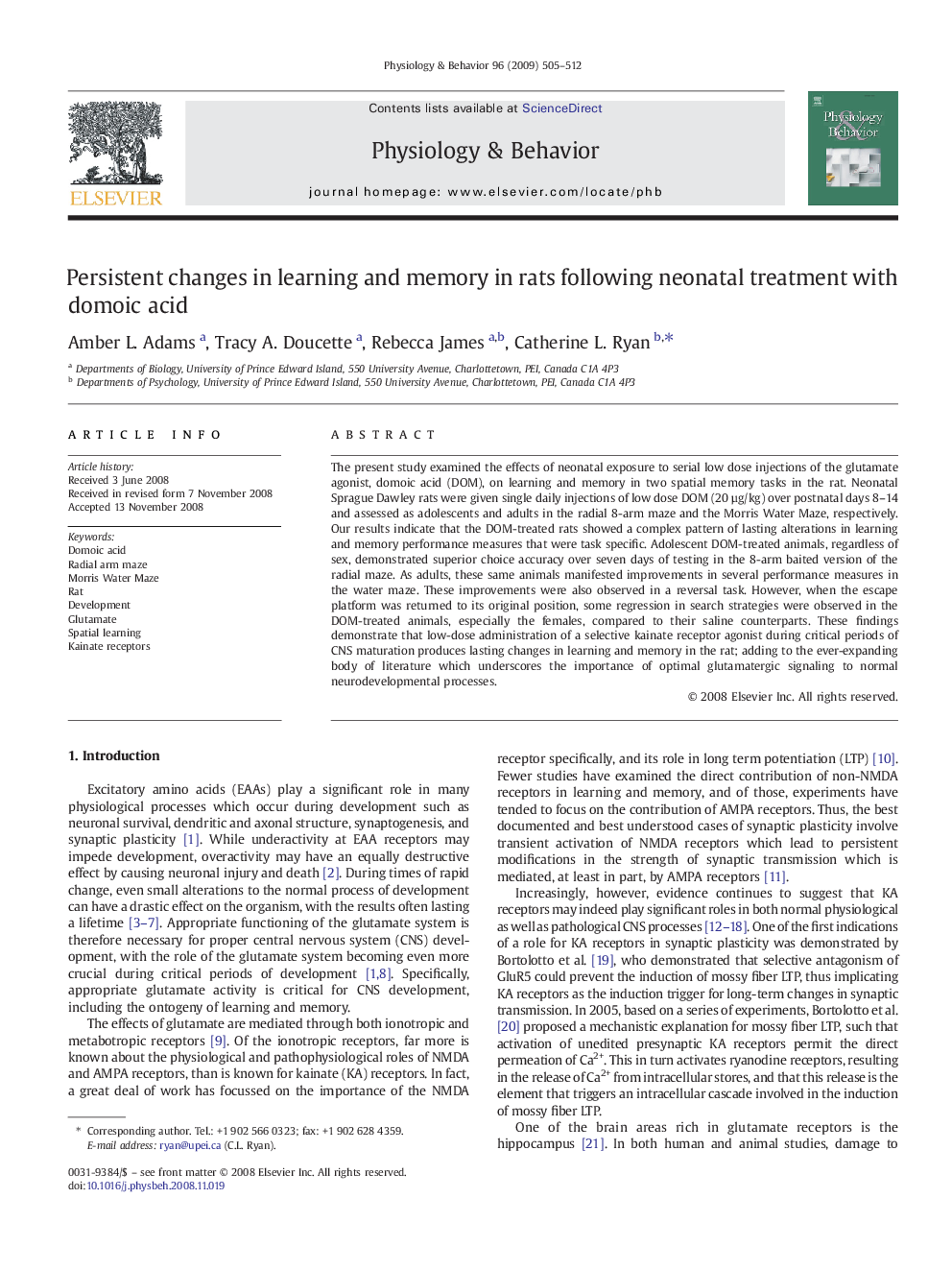| Article ID | Journal | Published Year | Pages | File Type |
|---|---|---|---|---|
| 2845485 | Physiology & Behavior | 2009 | 8 Pages |
The present study examined the effects of neonatal exposure to serial low dose injections of the glutamate agonist, domoic acid (DOM), on learning and memory in two spatial memory tasks in the rat. Neonatal Sprague Dawley rats were given single daily injections of low dose DOM (20 µg/kg) over postnatal days 8–14 and assessed as adolescents and adults in the radial 8-arm maze and the Morris Water Maze, respectively. Our results indicate that the DOM-treated rats showed a complex pattern of lasting alterations in learning and memory performance measures that were task specific. Adolescent DOM-treated animals, regardless of sex, demonstrated superior choice accuracy over seven days of testing in the 8-arm baited version of the radial maze. As adults, these same animals manifested improvements in several performance measures in the water maze. These improvements were also observed in a reversal task. However, when the escape platform was returned to its original position, some regression in search strategies were observed in the DOM-treated animals, especially the females, compared to their saline counterparts. These findings demonstrate that low-dose administration of a selective kainate receptor agonist during critical periods of CNS maturation produces lasting changes in learning and memory in the rat; adding to the ever-expanding body of literature which underscores the importance of optimal glutamatergic signaling to normal neurodevelopmental processes.
